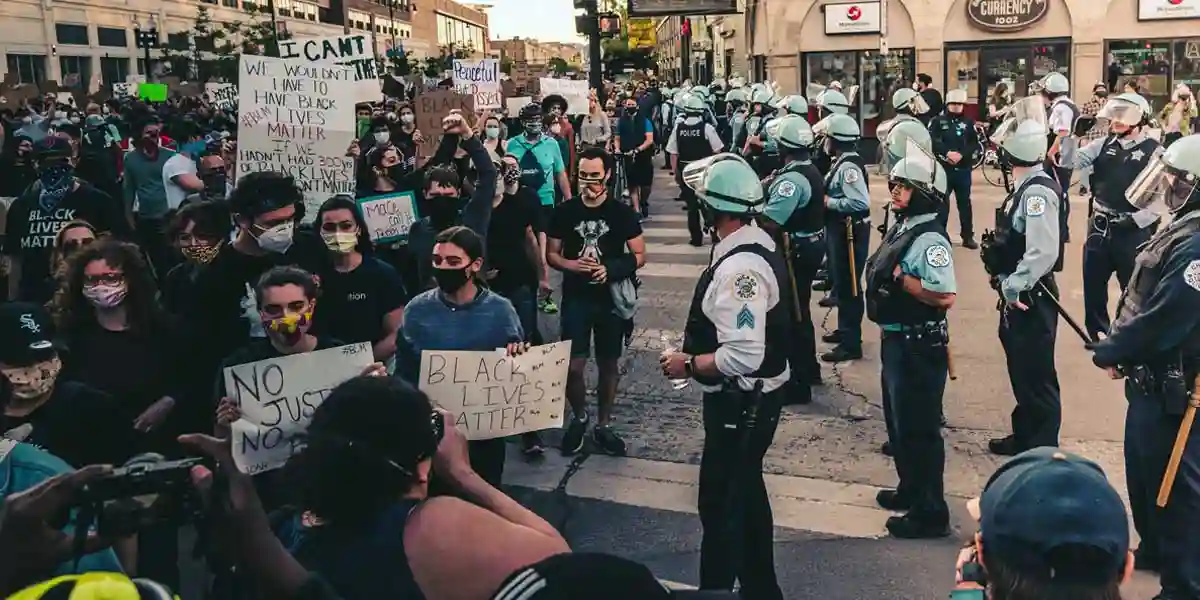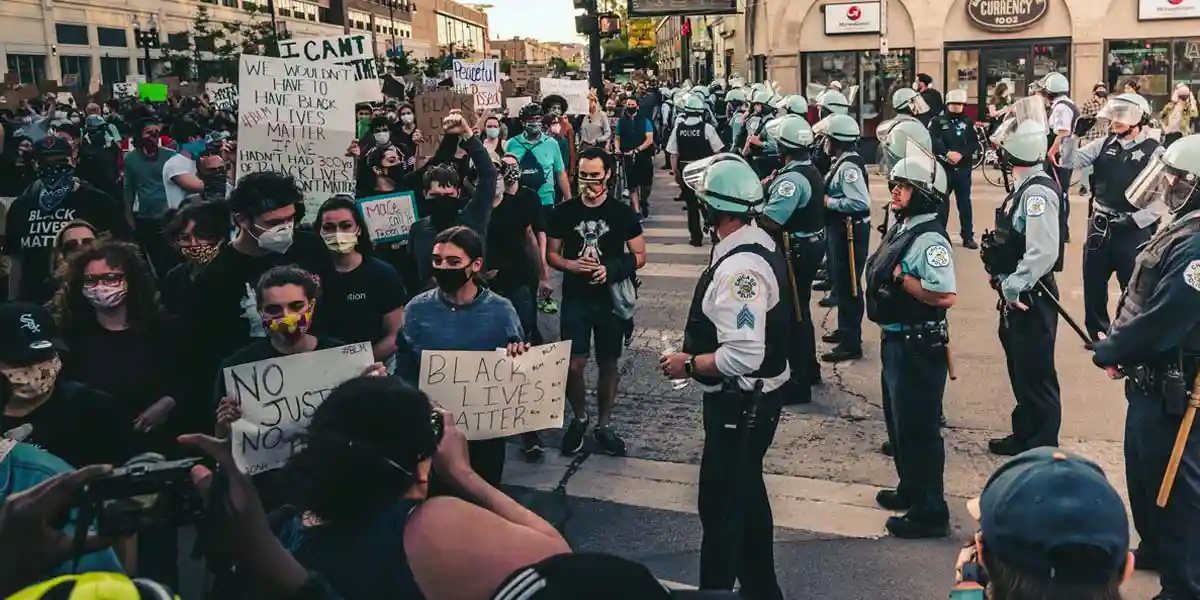The pain is so deep right now it feels unhealable.
Again we are facing the death of another black man, murdered before our eyes by someone who had sworn to protect their community.
The word “again” is the one that rings over and over in my head.
George Floyd’s death immediately calls to mind the many, many others who have suffered the same fate because of the color of their skin. Whose names become hashtags that are painted across social media, newsrooms, and cardboard signs carried in the streets. We could point to multiple stories from the last few weeks alone. #GeorgeFloyd, #BreonnaTaylor, #AhmaudArbery. Or we could go back further in time and draw from the scores of names, that include #EricGarner, #MikeBrown… #EmmetTill.
Will this time be different?
It’s the question that’s come up most commonly among my colleagues over the past few days. We’ve seen the sickening cycle of how things will pan out. We see the shocking news story. We share our shock on social media. We watch the protests afterward. But inevitably, we return to the way things were. We add their names to the list. And we move on with a papered over heartbreak, but ultimately, no real change to show for it.
Making things different this time around is a question of leadership and empathy.
Empathy is the most powerful act of leadership
For those in positions of power right now, the most significant act of leadership is showing empathy. It will not erase what has happened, nor fix the future. But in this moment, recognizing the pain and standing together is the single most critical act of leadership.
In cities where police officers have met protestors by kneeling, it has created moments of connection and understanding. In Flint, Michigan, Sheriff Christopher Swanson took off his helmet, and asked protestors what he and the other officers needed to do.
Their response?
“Walk with us.”
So he and his officers walked with them. Afterward, he shared that he believes that act saved lives as the march resolved peacefully.
Over the past few days, many have been quoting Dr. Martin Luther King, Jr., specifically around his position on riots. We all know Dr. King for his views on non-violent protests, and he spoke many times about the ineffectiveness of violence to a cause. However, he also said in his speech “The Other America,” that “a riot is the language of the unheard.”
The longer that we close our ears to the pleas for equality and justice, the longer these actions will continue, and the more devastating they will become. Responding with true, authentic empathy right now is every leader’s job, whether we are in public service, non-profits, the private sector, or any other position of leadership.
Speaking for my company, DDI, we stand with the families and friends of those who have been impacted by these tragic actions. We stand with you in the fight for justice, inclusion, and equality. And we are committed to being a positive force for empathy, enlightenment, and real change to move forward as a nation and as a community.
We must act as leaders
While empathy is critical, it’s only lip-service if it’s not followed by action. Every person has a role to play in stepping up to lead as we take the next steps forward.
We need to step up to lead these hard conversations – at work, at home, among friends and family, and especially with our children. It may be uncomfortable. It may be highly emotional. But we need to be open to talking, and really listen to what people who face systemic racism are saying. And it is ok to not have the answers. After all, any successful solutions will be ones we come up with together.
And we need to follow through with action, whatever that looks like for you personally. It may mean starting an inclusion and diversity council at your company if you don’t already have one. It may be leading by example for your children. It may mean doing the hard work to make your company culture more inclusive, and remove bias. It may be taking to the streets peacefully demonstrate condemnation of injustice. It may mean deeper political activism. It may mean starting a book or article club with the goal of enlightening yourself and better understanding of the experiences of others.
At our company, we’re starting with several of these things as we gather input from our employee community. We don’t have all the answers yet, but the key will be continued engagement with this topic over the long term, and pushing for real and measurable progress. It’s up to us all to make things different.
Because we do not have a peaceful or equitable society as long as it is a risk to simply exist in your body.
Listen to our on-demand webinar Do Better Together: How Leaders Can Support Social Change and Inclusion to navigate the difficult conversations and explore possible solutions that can help you create a more inclusive workplace.
Topics covered in this blog


